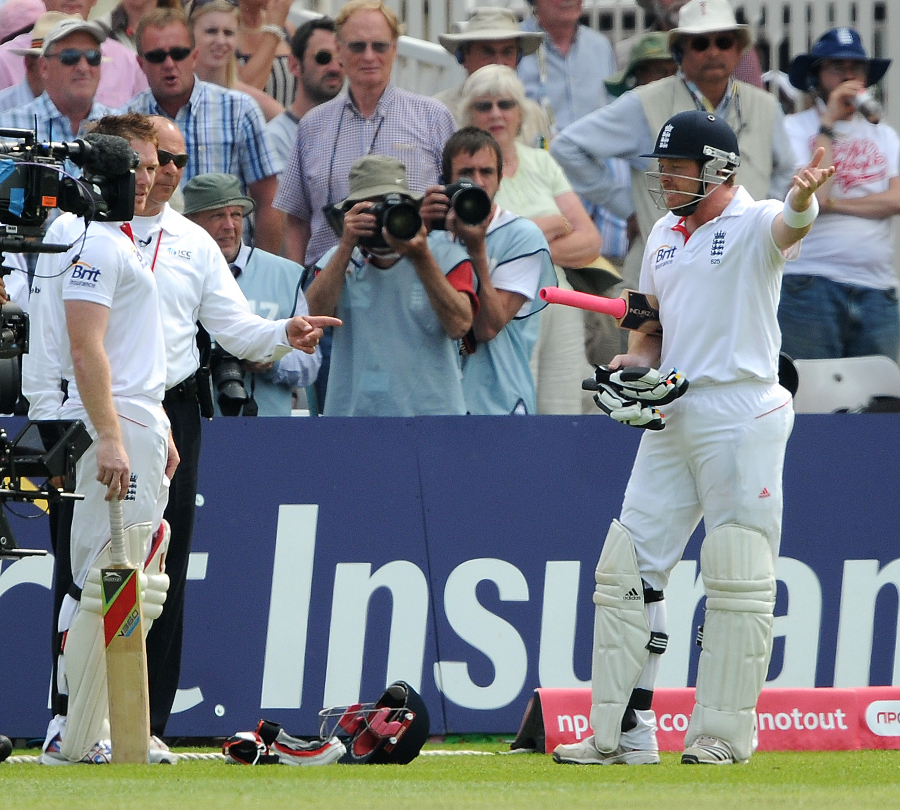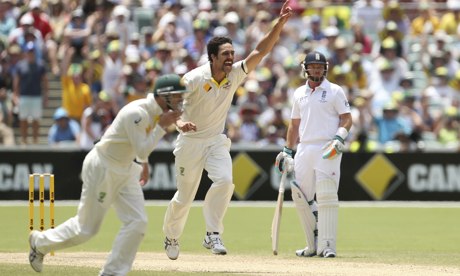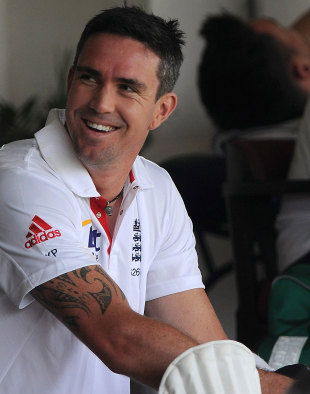
| |||
Two British satirists, the late John Fortune and John Bird, mastered the art of explaining slippery subjects through humour. They would take a major news story and apparently merely knock it about in a light, spontaneous chat on TV. But their mischievous dialogues often took us closer to the heart of the matter than acres of self-important newsprint. (Here they are in a famous sketch from 2007 about the financial crisis)
How I would have loved them to address cricket's confusion about the "spirit of cricket". The old controversy was reignited this month when Sri Lanka "Mankaded" Jos Buttler. In the spirit of admiration rather than emulation, in this piece I imagine a conversation between the two great satirists, reflecting on Mankading and cricket's odd attitudes towards morality...
"So what is it, this spirit of cricket thing? Presumably it's about behaving with dignity out on the pitch and that kind of stuff?"
"Oh no, not really. Most players can get away with swearing at each other non-stop for five days without contravening the spirit of cricket. We don't get involved morally at that level. Better to turn a blind eye."
"You mean sledging - that's the right term isn't it? - does not contravene the spirit of cricket?"
"Not really. No, cricket tends to celebrate verbal abuse as "banter", even though it's very rarely funny. Let's put it this way. If someone sledges you all day in a Test match, the correct response in modern cricket is to go up to him at the end of play and say, "I loved the way you showed real passion about playing for your country, you seem like a champion cricketer, can I buy you a drink, as I'm sure you're a great bloke off the pitch."
"So the appropriate response to someone calling you a "f****** ****" for seven hours is to say, 'Thanks, can I buy you a beer?'"
"Exactly."
"Now I'm confused. So abusing someone who is simply doing his job is fine. But when an opponent performs a run-out, entirely within the laws of the game, he has broken the spirit of cricket, and the crowd starts booing and the whole occasion is apparently demeaned?"
"You are beginning to understand how the phrase "spirit of cricket" can be thrown around."
"But what could Sri Lanka have done to avoid the Mankading? Other than the threat of a Mankad, there's no other way of preventing a batsman setting off for a run from an advanced position is there?"
"Not really."
"And I suppose, in the heat of battle in elite sport, no one offers warnings before acting within the laws, do they?"
"Well, actually Sri Lanka offered two warnings."
"So they offered two warnings to an opponent who was - deliberately or, in this instance, accidentally - gaining an illegal advantage, and yet they still broke the spirit of cricket?"
"According to lots of people, yes."
| Everything up to and including my actions are "within the spirit of cricket". Anything I don't like about the actions of other players is "against the spirit of cricket" | |||
"So if acting within the laws is against the spirit of cricket, what does upholding the spirit of cricket look like?"
"It's about not taking advantage of the fact that a man can lose his mind immediately before eating a slice of cake."
"I'm sorry, you've lost me."
"Back in 2011, poor Ian Bell offered a plea of temporary insanity brought about by the immediate temptation of a slice of cake. The 'spirit of cricket' jury gave him a reprieve, effectively a second life as a batsman."
"You're joking, right?"
"Deadly serious. Ian Bell made a brilliant hundred at Trent Bridge against India. But after the last ball before tea, he lapsed in concentration and assumed that the ball had crossed the boundary when in fact it hadn't. As he sauntered off for tea, the Indian team dislodged the bails, and Bell was run out. That is indeed out, according to the laws. But after an English delegation went to the Indian dressing room to complain, India retracted their appeal.
"That is, they invited Bell to bat again. Not because he wasn't out, but because they now realised that the prospect of tea had clearly clouded Bell's mind. Pundits agreed that everyone had behaved superbly. After all, how could a man be expected to remember the laws of the game when he can already sniff the aroma of chocolate cake in his nostrils?"
"This spirit of cricket is incredibly complex and malleable, isn't it? It looks as though you can explain or condemn almost anything using the rhetoric of the spirit of cricket."
"Exactly. That's the magic of it. It's all about not crossing a line."
"Whose line?"
"My line."
"What do you mean your line?"
"Everything up to and including my actions are 'within the spirit of cricket'. Anything I don't like about the actions of other players is 'against the spirit of cricket'."
"So it's possible for two people to argue for hours about someone 'crossing the line' without anyone knowing what or where the line is?"
"Exactly. That's the brilliance of the idea."
"Let's go back to the Mankading controversy. Wasn't there some background controversy about the bowling action of Senanayake, the bowler who performed the Mankading?"
"Senanayake's action has been reported as suspicious by several officials - i.e. it may be deemed a throw rather than a bowl. He will have to go to Cardiff to have his action specially filmed and analysed to see if it is legal after all."
"But isn't there a risk, when spin bowlers have to attend special testing, that they will simply bowl with a slightly different and 'more legal' action during the forensic examination?"
"What do you mean 'risk'? Basically, almost everyone who is tested eventually gets cleared. Think of the whole thing as a cooling off process."
"But what about the bowlers who don't have questionable actions? Aren't they placed at an unfair disadvantage by having to bowl in the traditional manner?"
"What do you think this is, a charity? This is cut-throat, elite sport. There is no room for sentimentality."
"Except the spirit of cricket?"
"Except for that, of course."
-------
The Economist on Mankading
-------
The Economist on Mankading
THERE was a controversial incident during England’s one day international (ODI) against Sri Lanka at Edgbaston last night. Sachithra Senanayake, a Sri Lankan bowler, ran out Jos Buttler, England’s best ODI batsman on current form, while he was backing up (pictured). In other words, as Mr Senanayake ran in to bowl, Mr Buttler wandered down the wicket to make it easier to complete a quick run. Having spotted this (and apparently having already warned Mr Buttler twice), Mr Senanayake stopped in his delivery stride, removed the bails and appealed for the run-out. Despite having the opportunity to withdraw the appeal, Angelo Mathews, Sri Lanka's captain, backed his bowler and Mr Buttler was given out.
“Mankading”, as it is known, named after Vinoo Mankad, an early proponent of the art, highlights an interesting divide. By and large it is frowned upon by professional players. Alastair Cook, England’s captain, described the incident as “a pretty poor act”, adding, apparently without irony, “there is a line and I think that line was crossed tonight.” Backing up as the bowler approaches, pros argue, has long been an accepted part of the game. As with many de facto sporting rules (which might also include footballers returning the ball to the opposition when a player is injured or the "neighbourhood play" in baseball, in which umpires will call a runner out so long as the fielder's foot is in the general vicinity of the bag) a team allows opposing batsmen to get away with it because they expect to be granted the same courtesy themselves. In this sense, they are entitled to be angry when the unwritten code is breached. Certainly, Mr Matthews could have few complaints were he now to be run-out in a similar fashion. Indeed, it is classic game theory on his part: weighing up the short-term benefit of disrupting a stable equilibrium against the long-term consequences of retaliation in kind.
But judging by others’ reaction to the incident, non-professionals (including your correspondent) see nothing wrong with Mankading. Stealing a few yards before the bowler has released the ball is gaining an unfair advantage. Put-upon bowlers, who have watched as the game has been skewed further and further in favour of batsmen, have every right to call them out on it. What is more, their right to do so is enshrined in the laws of the game, which state: "The bowler is permitted, before releasing the ball and provided he has not completed his usual delivery swing, to attempt to run out the non-striker."
Nonetheless, abiding by rules is not the same as acting in a right-minded way. Thepreamble to the laws of the game say cricket "should be played not only within its Laws but also within the Spirit of the Game". But who are the guardians of ethical norms in sport? It increasingly seems as if the principles of professional players are accepted, de facto, as correct. And they have judged that Mankading is not permissible but, for example, appealing for an LBW decision when the bowler knows the ball to be missing the stumps is. It is the same in other sports. In football, pundits talk, in pseudo-moralistic terms, about strikers having “every right to go down” when they sense the merest contact from an opponent in the penalty box. The moral imperative, they seem to argue, lies with the defender not to touch the attacker, rather than on the attacker not to play-act.
It is perhaps inevitable that professionals should become sport's moral arbiters. After all, their conduct is watched by millions every match. This has the effect of normalising their behaviour. What is more, when public judgment is required it is undertaken by ex-professionals on sports programmes, who tend to share their sensibilities. In their defence, there is also perhaps a case that professionals, paid to eke out every advantage, are more aware of where sport’s pressure points lie, and so are the best judges of what constitutes a crossing of the moral line. But either way, eventually that relentless professional viewpoint is bound to dominate everyone else’s thinking.
There might be an argument for moral relativism; that given the pressures they face, professionals should play to different standards than the rest. But this, it seems, is just a way of saying that professionals’ conduct can be less ethical than others’. And there is a difference between what has become accepted and what is right. In an ideal world, it would be the amateurs who would have the right to decide what is morally acceptable on the sport’s field; the enthusiasts that ruled as philosopher kings above the self-interested professionals. Having played Sunday cricket for many years, your correspondent suspects that those who most cherish cricket’s spirit are to be found on the village green, not the county square. If they say Mankading is moral, who are the pros to disagree?



